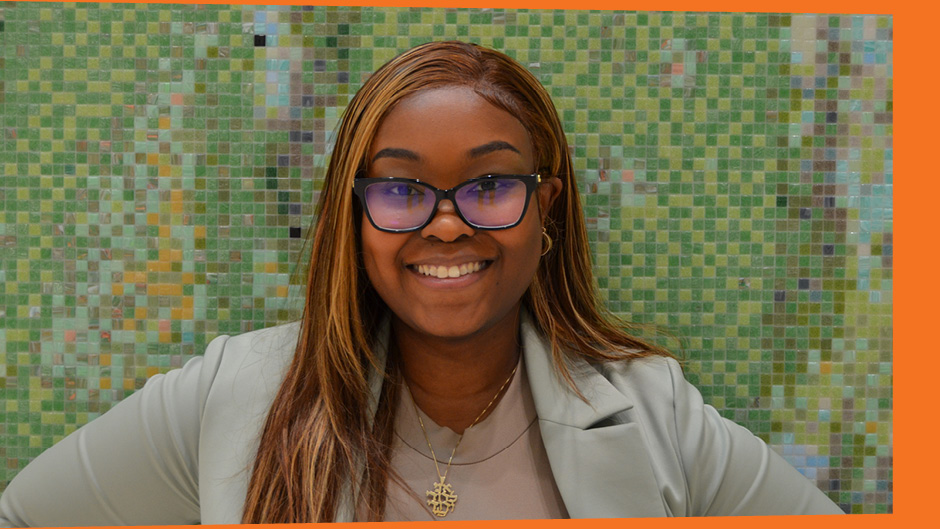The University of Miami School of Nursing and Health Studies (SONHS) is pleased to announce that Assistant Professor Renessa Williams, PhD, RN, has been awarded a three-year, $492,156 grant to determine the relationship between cannabis use and biomarkers of inflammation in Black sexual minority men (SMM) with HIV. The study, titled “Cannabis Use and Proximal Immune Dysregulation (CUPID),” is supported by the National Institute on Minority Health and Health Disparities of the National Institutes of Health under Award Number K23MD018337.
Black SMM experience profound HIV-related health inequities—including symptom severity, comorbidities and age-related diseases—compared to non-Hispanic white men. These disparate health outcomes may be linked to persistent inflammation caused by chronic exposure to sexual minority stressors such as sexual identity concealment, victimization, and community homophobia. At the same time, substantial preclinical evidence suggests cannabis can reduce inflammation in animal and cellular models; thus, it is crucial to understand how cannabis, along with other factors, may help attenuate the effects of inflammation to mitigate HIV-related inequities in clinical research.
“States are rapidly legalizing cannabis for recreational and medicinal purposes. Therefore, there is an urgent need for clinical research that seeks to understand the potential beneficial or adverse effects of cannabis,” said Dr. Williams. “Because cannabis research is still in its primacy, CUPID will provide crucial evidence on its interaction with the immune system in Black gay, bisexual, and other sexual minority men, a population largely underrepresented in HIV research.”
Known as a “Mentored Patient-Oriented Research Career Development Award,” the NIH’s K23 is a competitive funding mechanism intended to help promising early-career, doctoral-level clinical researchers develop the expertise and advanced research skills they need to launch their careers as independent investigators. Awardees work closely with accomplished mentors who help guide them in the successful implementation of their research studies.
“This K23 award is a testament to Dr. Williams’ promise as a rising star,” said SONHS Vice Dean for Research Affairs Hudson Santos, PhD, RN, FABMR, FAAN, the sponsor and primary mentor on Dr. Williams’ study. “Her research on the individual, interpersonal and structural factors that complicate health inequities among individuals with HIV—especially persons of racial and ethnic minority backgrounds and sexual minority men—is cutting edge, and the award will allow her to expand her skills to become even more successful in the future.”
Dr. Williams brings to the research enterprise the knowledge she has gained through her clinical training and experience. “As a Black nurse scientist, I have witnessed—both professionally and personally—how knowledge gaps can be mitigated by greater representation of scientists in research to address health inequities that affect minoritized communities,” she said. “This K23 Award will provide additional support, resources, and protected time to chart a pathway towards my success as an underrepresented minority investigator conducting HIV research.”
An interdisciplinary Mentorship Team representing four universities will provide Dr. Williams with guidance on training and research activities. In addition to Professor Santos, the Dolores J. Chambreau Endowed Chair in Nursing, Williams’ study mentors include SONHS Associate Professor Denise Vidot, PhD; Adam Carrico, PhD, Professor and Chair, Health Promotion and Disease Prevention, at Florida International University’s Stempel College of Public Health and Social Work; and Dustin Duncan, ScD, Associate Professor of Epidemiology at Columbia University Mailman School of Public Health. Daniel Feaster, PhD, at UM’s Miller School of Medicine and John Schneider, MD, MPH, at the University of Chicago also will collaborate with Dr. Williams on the study.
“The NIH K23 award is highly competitive and a stepping stone for early career scientists to expand their skills and research portfolio,” said Dr. Santos. “Dr. Williams now joins an elite group of NIH-funded researchers. I am doubly proud of this achievement as her sponsor and as the Vice Dean for Research Affairs at SONHS.”
“Dr. Williams is an outstanding young investigator. I have always admired her dedication to detangling the multilevel determinants of HIV-related health disparities from a biobehavioral lens by leveraging her nursing clinical expertise,” said Dr. Vidot. “She has seen the challenges firsthand while in the clinic, which adds depth to the public health and clinical implications of her research. This is a career-changing opportunity for Dr. Williams and I am honored to serve as one of her primary mentors.”
“It is a pleasure to have the opportunity to work closely with Dr. Williams as she builds an independent research program focused on addressing HIV-related health disparities in Black sexual minority men,” said Dr. Carrico.
For more information, please contact:
Rosa Lamazares-Romero, Director, University Communications
School of Nursing and Health Studies
rmlromero@miami.edu
Tel: 305-284-6255
###
About the School of Nursing and Health Studies:
Celebrating its 75th Year of Educational Excellence, the School of Nursing and Health Studies (SONHS) transforms lives and health care through education, research, innovation, and service across the hemisphere. SONHS has grown from South Florida’s first collegiate nursing program in 1948 to a world-class research-driven school conferring undergraduate and advanced degrees in nursing, as well as bachelor’s degrees in public health and health science. SONHS values its diverse faculty, students, and 250+ clinical and community health partners. The school’s research core includes a PAHO/WHO Collaborating Centre, the Center for Latino Health Research Opportunities, a Minority Health and Health Disparities Research Training Program, and its 41,000-square-foot Simulation Hospital Advancing Research and Education (S.H.A.R.E. ®). For more information, visit sonhs.miami.edu.

